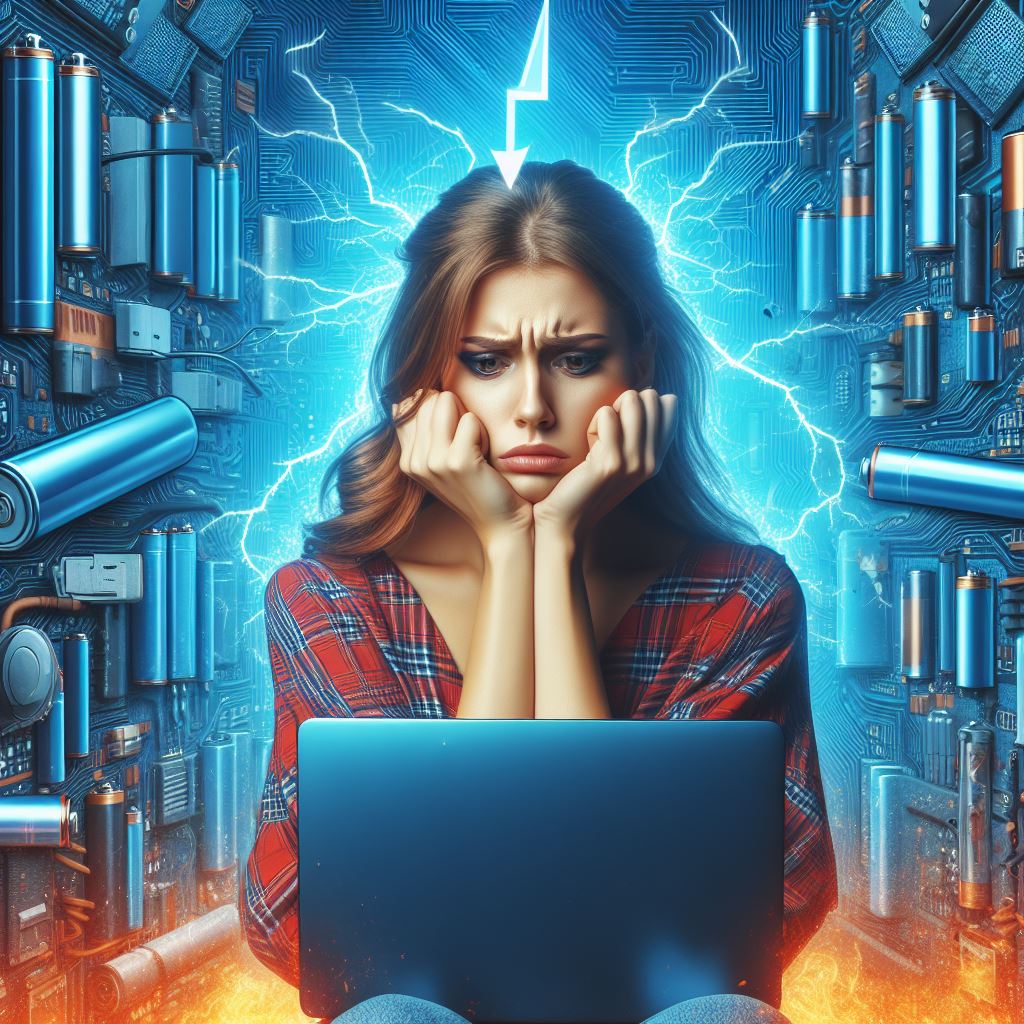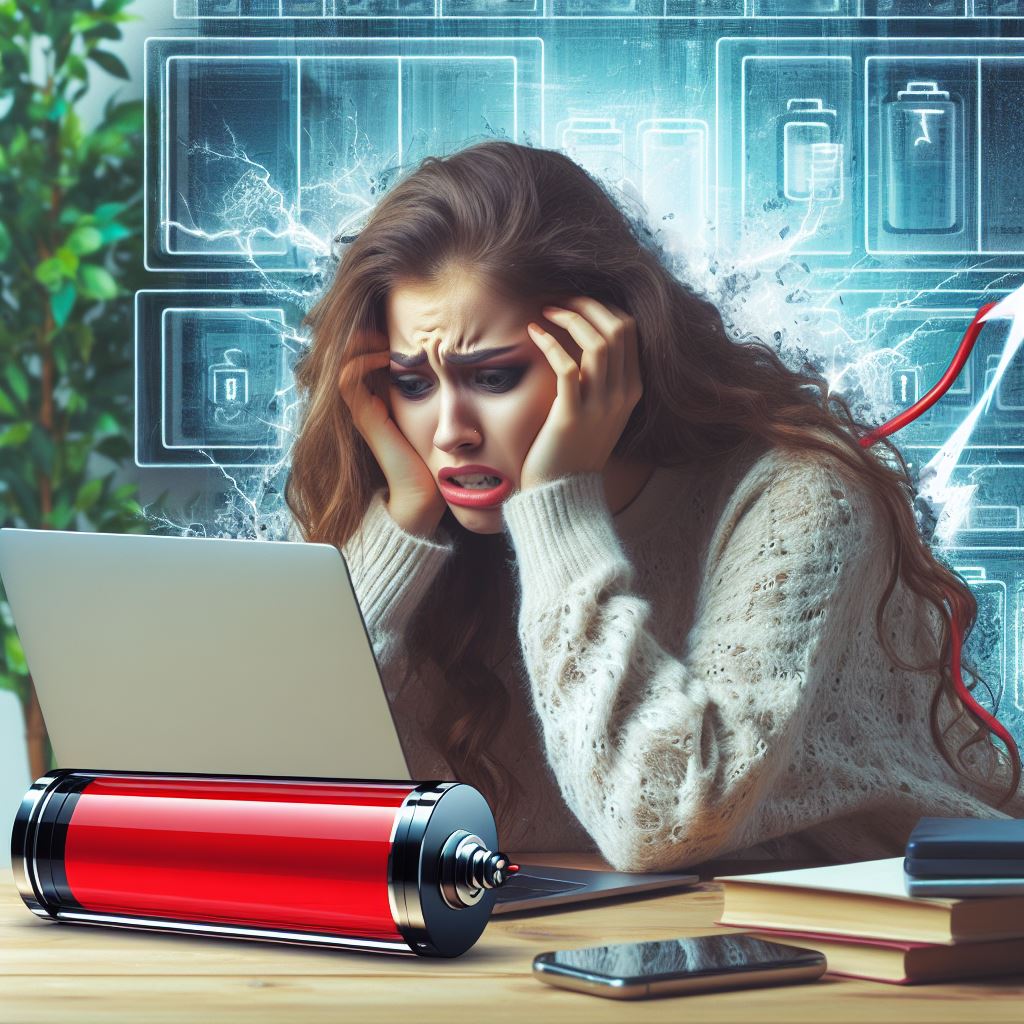The Heartbreak of Quickly Draining Laptop Batteries: Understanding the Causes and Solutions
In our fast-paced digital world, there's nothing as frustrating as watching your laptop battery drain at an alarming rate. Whether you're in the middle of an important project, trying to catch up on emails, or just enjoying some downtime, a rapidly draining battery can ruin your plans and leave you feeling frustrated and helpless.

But fear not, because there are reasons behind this phenomenon and solutions that will help you regain control over your device's power consumption.
1. Why is my laptop battery draining so fast?
- Background Processes: A common culprit for rapid battery drain is the presence of background processes running on your laptop. These processes, such as software updates, antivirus scans, and system maintenance tasks, can consume a significant amount of energy without you realizing it.
- High Performance Settings: If you frequently use your laptop for demanding tasks like gaming or video editing, you may have your device set to High Performance mode. While this setting may increase performance, it also consumes more power, leading to faster battery drain.
- Screen Brightness: The brightness of your laptop screen can have a significant impact on battery life. If you frequently keep the screen at maximum brightness, the battery will drain much faster than if you reduce the brightness level.
- Connected Devices: Do you frequently connect external devices to your laptop, such as USB drives, external hard drives, or peripherals like mice and keyboards? These devices can draw power from your laptop battery, contributing to faster draining.
- Aging Battery: Over time, your laptop battery will naturally degrade, resulting in decreased capacity and faster drain times. If you've had your laptop for several years and notice that its battery life has decreased significantly, it may be time to replace it.
2. How can I extend my laptop's battery life?
- Optimize Power Settings: One of the easiest ways to extend your laptop's battery life is by optimizing the power settings. Most operating systems offer power saving modes that reduce power consumption by limiting background processes, reducing screen brightness, and tuning system performance.
- Unplug unnecessary devices: When not in use, unplug all external devices connected to your laptop to prevent them from drawing additional power.
- Reduce screen brightness: Reducing the brightness of your laptop screen can significantly extend battery life. Consider adjusting the brightness level to a comfortable but energy-efficient setting.
- Close Unused Apps: Close all unused apps and browser tabs running in the background to reduce the load on your laptop's resources and extend battery life.
- Use Battery Saver Mode: Many laptops come with a built-in battery saver mode that automatically adjusts system settings to conserve power. Enable this mode when you need to maximize battery life, especially when working on less demanding tasks.
3. Are there software updates that can help improve battery life?
- Operating system updates: Keeping your laptop's operating system up to date can help improve battery life by fixing software bugs and optimizing power management features.
- Driver updates: Make sure your laptop drivers, including those for your graphics card, chipset, and battery, are up to date. Updated drivers often include performance and efficiency improvements that can help extend battery life.
- Software Optimization: Check for updates for the software applications you use frequently, as developers may release updates that improve energy efficiency and reduce power consumption.
4. What are some hardware-related factors that can affect battery life?
- Battery Health: The health of your laptop's battery plays a crucial role in determining its longevity. Over time, batteries can degrade due to repeated charge cycles, high temperatures, and aging, resulting in decreased capacity and faster drain times.
- Hardware Configuration: Your laptop's hardware configuration, including the processor, graphics card, and amount of RAM, can affect battery life. More powerful hardware components typically require more power to operate, resulting in faster battery drain.
- Ventilation and Cooling: Adequate ventilation and cooling are essential to maintain optimal performance and extend battery life. Make sure your laptop's vents are free of dust and debris, and consider using a laptop cooling pad to prevent overheating.
5. When should I consider replacing my laptop battery?
- Significant loss of capacity: If you notice a significant decrease in the capacity of your laptop battery, such as not being able to hold a charge for as long as it used to, it may be time to replace the battery.
- Frequent battery problems: If you encounter frequent battery-related problems, such as sudden shutdowns or the inability to turn on your laptop without being plugged in, it is a sign that the battery may be failing and needs to be replaced.
- Laptop Age: As a general rule, if your laptop is more than two or three years old and is experiencing noticeable battery degradation, it's probably time to invest in a new battery to restore the performance and longevity of your laptop. device.
In conclusion, while a laptop battery draining quickly can be a source of frustration, understanding the factors that contribute to this problem can help you take proactive steps to extend battery life and improve overall performance.
By optimizing your power settings, keeping your software and hardware up to date, and taking battery health into account, you can enjoy longer battery life and a more productive computing experience.
Remember, a little maintenance and attention to detail can go a long way toward preserving your laptop's battery and ensuring it remains a reliable companion for years to come.
